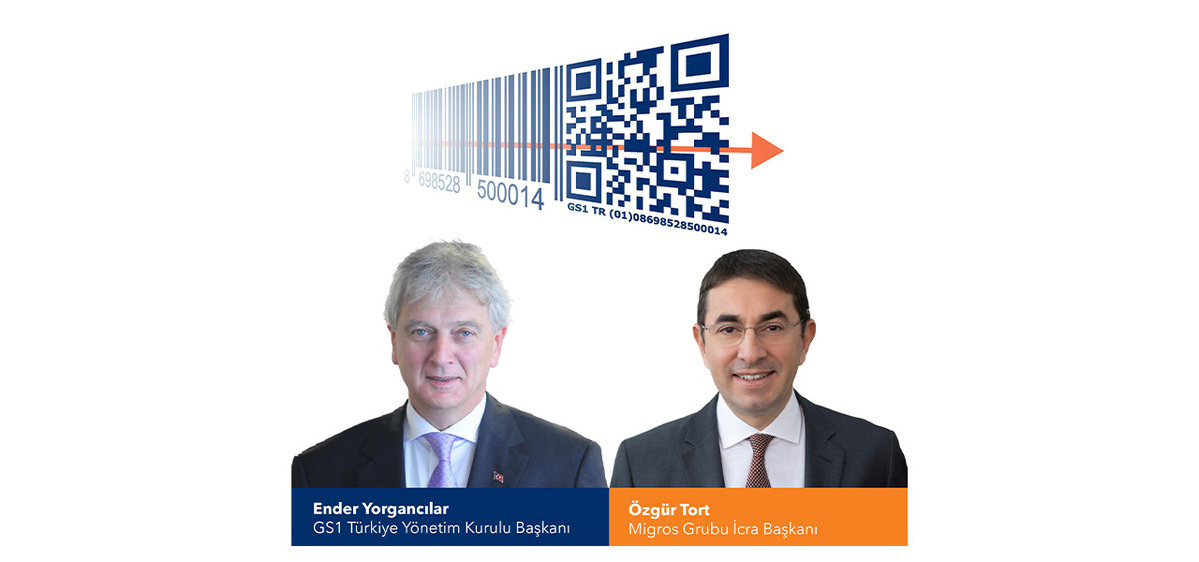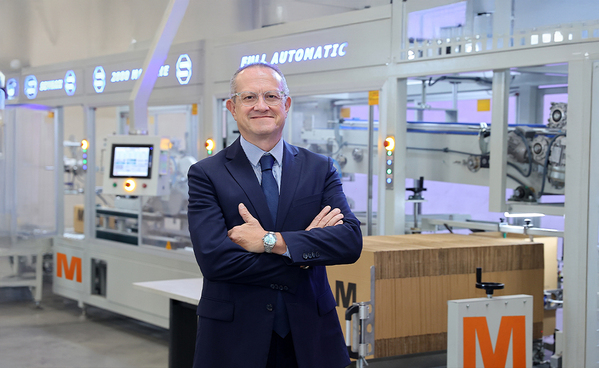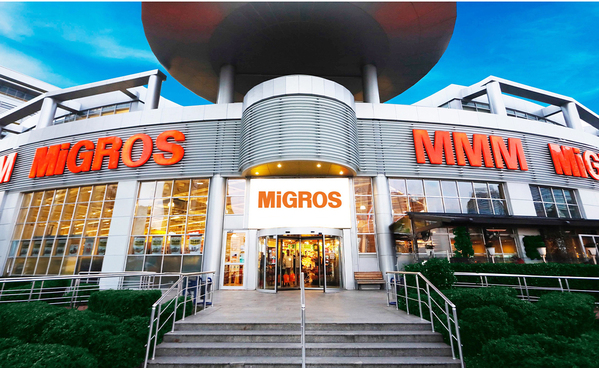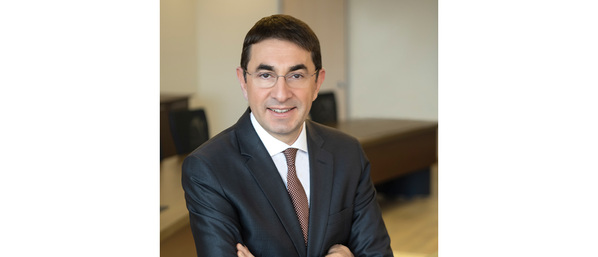Migros Starts the Process of Switching From Barcode to GS1 QR Code System
Migros Group CEO Özgür Tort, who continues to serve as a Member of the GS1 Türkiye Board of Directors and GS1 Global Board of Directors, announced that they have started the transition process to the GS1 QR Code system. The CEOs of 20 manufacturers, retailers, and e-commerce marketplace companies, including Migros from Türkiye, signed a joint declaration.

SHARE
Migros Group CEO Özgür Tort, who continues to serve as a Member of the GS1 Türkiye Board of Directors and GS1 Global Board of Directors, announced that they have started the transition process to the GS1 QR Code system. The CEOs of 20 manufacturers, retailers, and e-commerce marketplace companies, including Migros from Türkiye, signed a joint declaration.
Ender Yorgancılar, Chairman of the Board of Directors of GS1 Türkiye, suggests that GS1 standard QR Codes provide many new opportunities, such as providing a wide range of information to consumers and making scanning possible at the checkout.
“As Migros, we have taken the first step and ensured the full traceability of our “Uzman Kasap” products with the GS1 QR Code system. With this declaration we have signed, we will make the GS1 QR Code system ready for use at all cash registers and on online channels by 2027” states Özgür Tort, Migros Group CEO.
During the technical preparation process until 2027, manufacturers will integrate QR Codes per GS1 standards into the labels of their products, and retailers will update their cash register systems to read GS1 QR Codes.
It has been 50 years since a GS1 barcode was first scanned at the cash register. Now it is being replaced by the GS1 QR Code system. CEOs of 20 manufacturers, retailers, and e-marketplace companies worldwide, including Migros from Türkiye, have started the process for the implementation of the QR Code system per GS1 Standards by signing the Joint Statement. During this process, manufacturers will integrate QR Codes per GS1 standards into the packages of their products, and retailers will update their checkout systems to read GS1 QR Codes.
Özgür Tort, Migros Group CEO and Member of the Board of Directors of GS1 Türkiye and GS1 Global: "Having implemented the first barcode system in Türkiye, Migros will make the GS1 QR Code system ready in 2027”
"Migros implemented the first barcode application in Türkiye. We were the first to apply the GS1 2D barcode with our Uzman Kasap brand. With this step, we have ensured full traceability of our Uzman Kasap products. So far, the barcode system contained limited information. Now, it is possible to add much more comprehensive data such as safety information, product content, nutritional values, certificates, recycling, traceability information and all sustainability and logistics details to the GS1 QR Codes. Thus, consumers will be able to access all information about the product using a smartphone. When the system starts to work, the traceability of the products will increase, as well as efficiency during the processes. We have signed the GS1 QR Code joint declaration. With this declaration, we will make the GS1 QR Code system ready for use from all cash registers and through online channels by 2027. The system will quickly become widespread to all retailers and manufacturers” states Özgür Tort.
Reminding that consumers pay attention to many features, including the nutritional value and content of the product they buy, as well as whether sustainable resources are used in production, Tort adds that “A very wide pool of information will be included in the product’s GS1 QR Code. With this study, which brings the correct flow of information and transparency to the consumer, the data will have a say instead of the packaging of the products. Our customers will be able to track all kinds of products to their source via GS1 QR Code whether at home, by the shelf, or online. Details such as the production date, product batch, expiry date information, product user manual, and recycling information will be accessed. We will even get to a level where we can follow up on the carbon footprint of the products. Thus, full traceability will be ensured. Expiry date control of all products will be automatically completed in the cash register step. This way, product data will be transformed into a real customer experience. We will offer a significant contribution to our sector and our customers with this application, which we will implement in line with our new generation retail approach.”
Ender Yorgancılar, Chairman of the Board of Directors of GS1 Türkiye: "GS1 QR Codes are the gateway that opens to world trade”
"Barcodes are heavily used today but have become unable to meet the future requirements of the industry besides the need to carry more product information in line with the demands of consumers and regulations. Therefore, GS1 QR Codes will provide many new opportunities, such as providing all the information requested by consumers and regulations as well as making scanning possible at the checkout.”
“Since the day GS1 Türkiye was founded, it serves as a bridge for its members, 85 percent of whom are SMEs, to digitalize and expand abroad using international standards. We are working for the effective implementation of nationwide trade, and we are providing exporters with international competitiveness as the “gateway to world trade” within the global GS1 network which has 118 member countries. The 20 companies that signed the Joint Statement operate in 150 countries. These companies, which have a market value of approximately $1.3 trillion, provide employment opportunities for more than 2 million people. We will put in our efforts to make this system widespread” concludes Ender Yorgancılar.
Today, with barcodes scanned 10 billion times a day around the world, the entire path of a product's supply chain can be followed from production to distribution, from export to recycling in all areas of trade. The barcode system used at a checkout for the first time on June 26, 1974, is included in 99% of the products on the shelves today.


